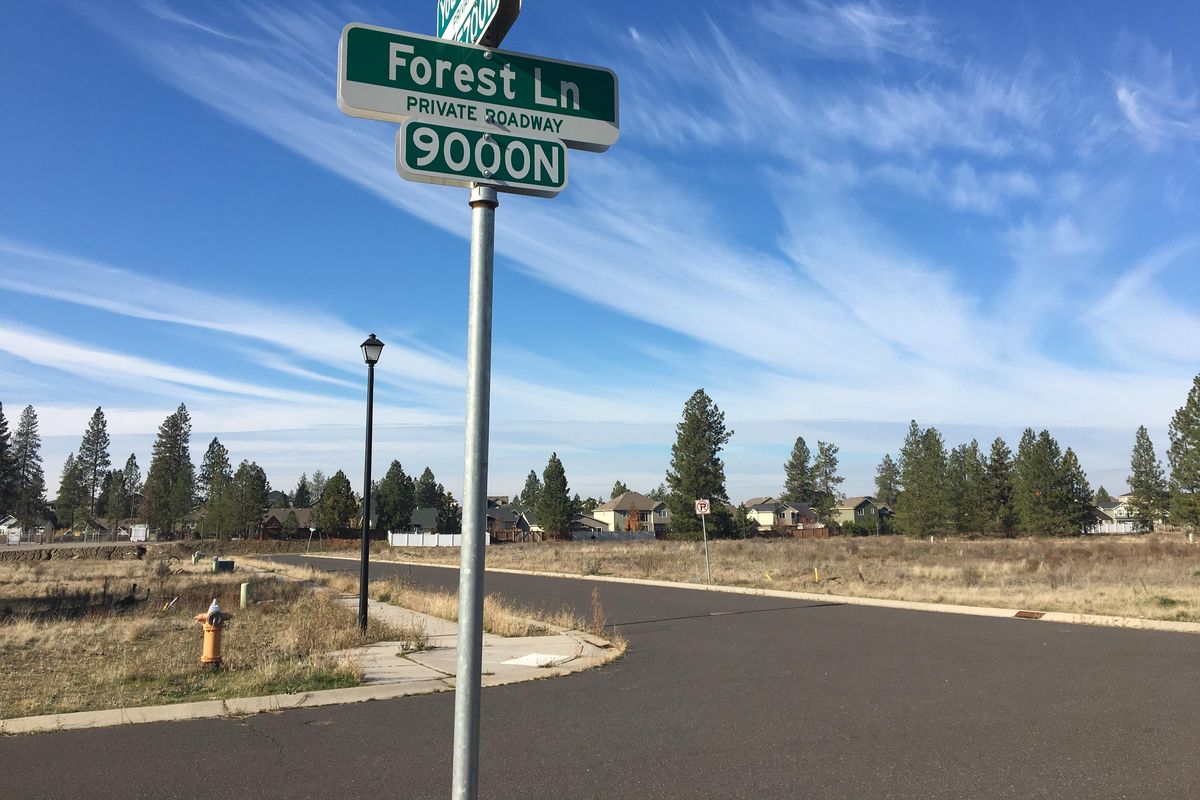Developer planning to appeal Spokane City Council’s decision to nix North Indian Trail apartment project

The Spokane City Council unanimously handed North Indian Trail neighborhood residents a victory Monday by shooting down a controversial apartment project, but the developer plans to appeal.
Steven Hassing, the attorney representing Harley Douglass in his plans to build 750 apartments off North Indian Trail Road, said Friday an appeal to the Eastern Washington Growth Management Hearings Board is likely. After several hours of impassioned testimony from neighborhood residents Monday night, all members of the council voted against the project. The city’s Plan Commission voted narrowly 4 to 3 to oppose the project last month.
“I think the council placed too much emphasis on the volume of opposition,” Hassing said.
Douglass, through Hassing and project engineer Jay Bonnett, argued that the city’s comprehensive plan called for more dense, multifamily housing on the roughly 50 acres bounded by Shawnee Avenue and Barnes Road on the west side of North Indian Trail. Roads, sidewalks, street lamps and signs as well as utility hookups already are installed in preparation for development.
“The properties have been developed to a level that didn’t even meet the minimums of what the zoning was allowing,” Bonnett said, leaving the nearby Sundance Plaza shopping center in the lurch. There’s a 14 percent vacancy rate in the retail center, according to the site’s manager, Richard Vandervert.
But City Council President Ben Stuckart said he didn’t believe the city was under a requirement to permit the apartments simply because similar housing hadn’t materialized elsewhere in the neighborhood.
“It doesn’t say that if you underdevelop areas, then we are required to make other areas multifamily,” Stuckart said. The acreage’s existing plans call for the construction of 268 single-family homes.
Many of the comments from North Indian Trail residents focused on the traffic capacity of roads in the area, particularly North Indian Trail Road and Francis Avenue to the south.
“We only have one way in and one way out,” said Terry Deno, president of the North Indian Trail neighborhood council whose members showed up in force to oppose the apartments.
Douglass has 60 days to determine whether he’ll appeal the council’s unanimous ruling to the hearings board, a group of officials appointed by the governor to resolve disputes under the state’s growth management laws. Outside city limits, neighborhoods often have sought appeals of decisions that were favorable to the developer by county commissioners. Several such appeals in the Five Mile Prairie neighborhood led to a sweeping settlement this year dictating where growth can occur in unincorporated parts of the county.
Hassing said the council’s unanimous decision to oppose Douglass’ project stood at odds with members’ stated goal of promoting infill development inside the city. On the east side of the proposed apartment complex are the Lusitano apartments, which also are owned by Douglass. To the west is the 35-acre Ponderosa Ridge development of single-family homes.
“It’s not like we’re taking a piece of green farmland and trying to build apartments on it,” Hassing said.
But Councilwoman Amber Waldref, speaking from the dais Monday night, said that while she supported infill development generally, it shouldn’t be built at significant odds with the stated plans of the neighborhood.
“I really believe the key to successful infill in the city of Spokane is the completion and updating of” neighborhood plans, Waldref said before voting against the project.
Councilman Mike Fagan, who often votes against the liberal majority on the council, joined his colleagues because of the concerns about traffic safety.
“I’ll tell you, that was the first thing and the most impactful thing that I happened to see up at Indian Trail,” said Fagan, who visited the site several times in the past few weeks to observe cars on the road.
Douglass had agreed to pay the impact fees – cash paid to a city government to cover the costs of providing services to residents in a neighborhood – for the development project up front so that the widening of lanes on Indian Trail Road near the project could take place simultaneously with planned paving in the neighborhood. The city had not dedicated any of its money for improvements in the area over the next six years, and traffic studies showed building the units might stress several of the roads, especially Barnes Road, to a point below city safety standards.
Douglass now may choose to appeal, file a new comprehensive plan amendment that wouldn’t be considered until 2018, or build according to the original site plans.
Also Monday night, in less controversial presentations, the council unanimously approved:
A zoning change allowing KXLY to develop retail space on 1.9 acres of property it owns near the Southeast Sports Complex on the South Hill, a project that met the approval of the Southgate Neighborhood Council; and
A zoning change allowing Avista Corp. to use 14 properties in the Logan neighborhood the company already owns to expand its campus.